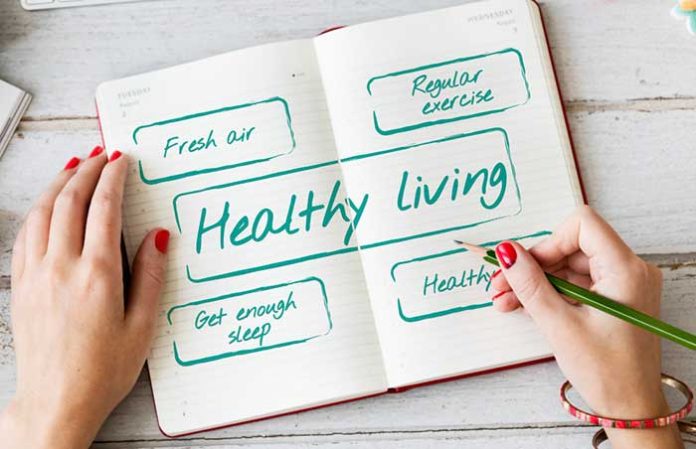Addiction recovery is a journey of rewiring the brain and breaking ingrained patterns. While challenging, establishing healthy habits can be a powerful catalyst for lasting change. By shifting focus from instant gratification to long-term wellness, you build a foundation for an addiction-free life.
Recognize personal triggers, create a supportive environment, and prioritize nutritional, physical, and mental practices to nurture recovery. Embrace new hobbies, track progress, and stay resilient through setbacks. Small, consistent steps toward healthy habits pave the way to freedom and fulfillment.
Understanding the Role of Healthy Habits in Addiction Recovery
The process of developing healthy habits involves creating new neural pathways in the brain, which can gradually replace the ones associated with addictive behaviors. This rewiring process takes time and consistent effort, but the rewards are immense. Individuals who successfully establish healthy habits often experience improved mood, increased energy levels, better sleep, and a heightened sense of control over their lives.
Healthy habits not only support the recovery process but also contribute to overall well-being. By prioritizing self-care and engaging in activities that nourish the mind, body, and soul, individuals can discover newfound purpose, joy, and fulfillment in their lives, free from the grip of addiction.
Identifying Triggers and Creating a Supportive Environment
Before cultivating new habits, it’s crucial to recognize your personal addiction triggers and stressors. These triggers can vary greatly depending on the type of addiction. According to recent surveys, the most common types of addiction include alcohol, illicit drugs, smoking, gambling, gaming, and technology overuse. Triggers and root causes tend to differ across these most common addictions.
For example, a gambling addict may be triggered by visiting a casino or seeing lottery ads, while a technology addict feels compulsions when their device buzzes with notifications. By developing self-awareness around the triggers specific to your addiction type, individuals can take proactive steps to modify environments and remove temptations.
Creating a supportive environment is equally important in the recovery process. This may involve adjusting living situations, distancing oneself from negative influences, or seeking out positive and uplifting relationships. Surrounding oneself with a supportive network through groups or therapy provides accountability, encouragement, and a sense of community during tough times.
Support groups and therapy can offer invaluable insights, coping strategies, and a safe space to share experiences and challenges. These resources not only provide emotional support but also equip individuals with practical tools to navigate triggers and maintain their commitment to recovery.
1. Mental Health Practices for Sustaining Recovery

While physical wellness is a crucial component of addiction recovery, nurturing mental and emotional health is equally paramount. Mindfulness practices, such as meditation and deep breathing exercises, can help individuals manage stress and cravings more effectively.
Cognitive-behavioral techniques, often employed in therapy sessions, can reframe negative thought patterns that might trigger relapse. By learning to identify and challenge distorted thinking, individuals can develop healthier coping mechanisms and more constructive thought processes.
Integrating mental health practices into one’s daily routine can provide a sense of structure and consistency, which can be particularly beneficial during the recovery process. Some practical strategies include:
- Starting the day with a few minutes of deep breathing or meditation to cultivate mindfulness and reduce stress.
- Practicing visualization exercises to envision goals and overcome challenges, reinforcing a positive mindset and motivation.
- Engaging in journaling to process thoughts and emotions constructively, fostering self-awareness and emotional regulation.
- Surround yourself with inspiring Saturday health quotes that reinforce the power of healthy habits and resilience.
Additionally, seeking professional support from a therapist, counselor, or mental health professional can be invaluable for individuals navigating the complexities of addiction recovery. These professionals can provide personalized guidance, evidence-based techniques, and a safe space to explore underlying emotional or psychological issues that may contribute to addictive behaviors.
2. Nutritional Wellness as a Foundation for Recovery
What we consume significantly impacts our mood, energy levels, and overall well-being, making nutritional wellness a crucial foundation for addiction recovery. A balanced diet rich in fruits, vegetables, lean proteins, and healthy fats supports the body’s natural detoxification processes and promotes brain health.
During active addiction, individuals may have neglected their nutritional needs, leading to deficiencies and imbalances that can exacerbate cravings, mood swings, and other withdrawal symptoms. By focusing on nutrient-dense foods, individuals can replenish their bodies and provide the necessary fuel for healing and recovery.
Meal planning and incorporating nutrient-dense foods can make a significant difference in the recovery journey. Some key dietary tips include:
- Increasing the intake of omega-3 fatty acids, found in fish, nuts, and seeds, reduces cravings and improves mood regulation.
- Staying hydrated by drinking plenty of water, herbal teas, or infused waters to support the body’s natural detoxification processes.
- Limiting processed foods, sugary snacks, and caffeine, which can trigger cravings or exacerbate withdrawal symptoms.
Additionally, it’s essential to address any underlying nutritional deficiencies or imbalances with the guidance of a healthcare professional or registered dietitian. Proper supplementation and targeted nutritional interventions can aid in restoring balance and supporting overall recovery.
Also Read:
Keto Tuna Casserole
Soup and Salad Diet Plans
3. Physical Activity: Building Strength, Reducing Cravings

Regular exercise offers numerous benefits for addiction recovery. It reduces substance cravings, improves overall well-being, builds strength and endurance, and boosts resilience. Physical activity releases mood-boosting endorphins that can alleviate withdrawal symptoms and cravings, making recovery more manageable. Exercise also increases self-confidence and provides a healthy outlet for stress relief, factors that prevent relapse.
Develop a personalized exercise routine that fits your recovery plan. Start with low-impact activities like walking, yoga, or swimming if you’re a beginner, then gradually increase intensity as you build strength. Incorporate diverse activities to prevent boredom and hinder motivation. Explore group fitness classes, outdoor activities, or sports to foster a sense of community and accountability.
Approach exercise in a balanced, sustainable manner. Overexertion or unrealistic expectations can lead to discouragement and setbacks. Consider working with a qualified fitness professional or personal trainer to create a tailored plan that aligns with your goals, abilities, and preferences. Consistent physical activity can be a powerful tool in your addiction recovery journey.
4. Sleep Hygiene: The Unsung Hero of Recovery
Quality sleep is often overlooked but plays a vital role in addiction recovery. Lack of sleep can disrupt mood regulation, increase cravings, and hinder overall well-being, ultimately hindering progress in the recovery journey.
During active addiction, individuals may have experienced disrupted sleep patterns due to the effects of substances, stress, or accompanying mental health issues. Restoring a healthy sleep routine is essential for promoting physical and mental rejuvenation, as well as supporting the body’s natural healing processes.
- Establishing a restorative sleep routine involves implementing several sleep hygiene practices, such as:
- Maintaining a consistent sleep schedule, even on weekends, to regulate the body’s internal clock.
- Creating a sleep-friendly environment that is cool, dark, and quiet, minimizing external disturbances.
- Avoiding screens (e.g., smartphones, tablets, televisions) at least an hour before bedtime, as the blue light emitted can disrupt melatonin production and interfere with sleep quality.
- Practicing relaxation techniques like progressive muscle relaxation, gentle stretching, or mindfulness exercises to calm the mind and body before bed.
In addition to these habits, It’s crucial to address any underlying sleep disorders or conditions that may disrupt restful sleep. Consulting with a healthcare professional can help identify and treat issues such as insomnia, sleep apnea, or other sleep-related conditions that could hinder the recovery process.
5. Building New Hobbies and Interests
As you distance yourself from addictive behaviors, cultivating new hobbies and interests is crucial. These activities provide a sense of purpose, accomplishment, and joy – powerful tools in the recovery journey. They redirect focus and infuse life with newfound meaning.
Explore creative outlets like painting, writing, or music to channel emotions constructively. Or pursue outdoor activities like hiking, gardening, or photography to connect with nature and promote physical activity. Learning new skills boosts self-confidence and counteracts feelings of low self-worth often accompanying addiction.
Read Also: 5 Easy Hikes in Sedona
Hobbies serve as healthy distractions, reducing the likelihood of engaging in addictive behaviors during idle or triggering moments. They also lead to forming new social connections and communities with like-minded individuals, providing a supportive environment that reinforces recovery commitment.
Approach new hobbies with an open mind, trying different activities until you find the right fit. The journey of self-discovery can be as rewarding as the hobbies themselves. Experiment and have patience – the personal growth from exploring new interests is invaluable.
6. Monitoring Progress and Adjusting Strategies
Recovery is a dynamic process, and it’s crucial to monitor progress and make adjustments to strategies as needed. Setting realistic goals and celebrating milestones along the way can provide a sense of achievement and motivation, reinforcing the commitment to a healthier lifestyle.
Utilizing tools like journaling or recovery apps can help individuals track their progress, identify patterns, and make informed decisions about their recovery plan. By reflecting on successes, challenges, and triggers, individuals can gain invaluable insights and make necessary adjustments to their strategies.
It’s important to remember that setbacks or relapses are not failures but opportunities for learning and growth. With the right support system and resilience, individuals can bounce back stronger and more determined than ever before.
If an individual is struggling or feels the need to refine their approach, seeking professional help should not be delayed. Therapists, counselors, and addiction specialists can provide personalized guidance and evidence-based strategies to address specific challenges or roadblocks in the recovery process.
Regularly reviewing and adjusting strategies is a sign of commitment and adaptability, not weakness. By embracing a growth mindset and remaining open to change, individuals can navigate the recovery journey with greater confidence and resilience.
Conclusion:
Establishing healthy habits is a powerful tool in overcoming addiction and reclaiming your life. By addressing triggers, optimizing your environment, nourishing your body and mind, and engaging in fulfilling activities, you’re building a solid foundation for lasting recovery.
Read More: Healthy Habits for Kids
FAQs
The first step is to seek professional support and guidance from a therapist, counselor, or addiction specialist. With their help, you can develop a personalized recovery plan that incorporates healthy habits in a sustainable and manageable way. Start small, celebrate minor victories, and be patient with yourself as you build momentum. Remember, recovery is a journey, and progress takes time.
Absolutely. Relapse is a common part of the recovery journey and does not mean failure. Establishing healthy habits can provide the resilience and structure needed to bounce back stronger. Stay focused on your progress, adjust your strategies if needed, and lean on your support system for encouragement. Each relapse is an opportunity to learn and refine your approach.
Remind yourself of your “why” – the reasons you embarked on this journey in the first place. Celebrate small wins, practice self-compassion, and don’t be afraid to seek additional support when needed. Surrounding yourself with a positive community and engaging in activities that bring you joy can also help boost motivation. It’s also helpful to reframe setbacks as learning opportunities rather than failures.
Accountability is key in maintaining healthy habits. Consider joining a support group or finding an accountability partner who can encourage and motivate you. Additionally, tracking your progress through journaling, apps, or charts can help you stay mindful of your goals and commitments. Celebrating milestones and rewarding yourself for achieving small goals can also reinforce your commitment.
Cravings and urges are normal and can be expected during the recovery process. When they arise, practice mindfulness techniques like deep breathing or grounding exercises to stay present in the moment. Engage in healthy distractions or activities that shift your focus, and reach out to your support system for encouragement. Remember, cravings are temporary, and they will pass with time and practice.
Identify potential triggers in advance and develop a plan to avoid or mitigate them. This may involve modifying your environment, politely declining invitations, or bringing a support person with you. Additionally, practice coping strategies like deep breathing, visualization, or excusing yourself from the situation if needed. Be honest with your loved ones about your boundaries and needs during recovery.
Self-care is essential in establishing healthy habits and maintaining recovery. By prioritizing your physical, mental, and emotional well-being, you create a strong foundation for sustainable change. Incorporate activities that nourish your mind, body, and soul, such as exercise, healthy eating, mindfulness practices, and engaging in hobbies or leisure activities that bring you joy and fulfillment.
Involving loved ones in your recovery journey can provide valuable support and encouragement. Share your goals and progress with them, and educate them on the importance of establishing healthy habits. Invite them to participate in activities like meal planning, exercise routines, or new hobbies with you. Their understanding and involvement can create a more supportive and nurturing environment for your recovery.
Striking a balance between self-care, healthy habits, and other responsibilities can be challenging, but it’s essential for long-term success. Start by prioritizing and scheduling activities that support your recovery, such as exercise, meal preparation, or therapy sessions. Communicate your needs and boundaries with loved ones and colleagues, and don’t be afraid to ask for help or support when needed. Remember, taking care of yourself is not selfish; it’s necessary for fulfilling your other obligations and responsibilities.
If you encounter setbacks or relapses, don’t be discouraged or view it as a failure. Instead, approach it as a learning opportunity. Reflect on what triggered the setback and identify areas for improvement. Reach out to your support system, including therapists or counselors, for guidance and adjustments to your recovery plan. Remember, setbacks are a normal part of the recovery journey, and with resilience and the right strategies, you can bounce back stronger than before.





